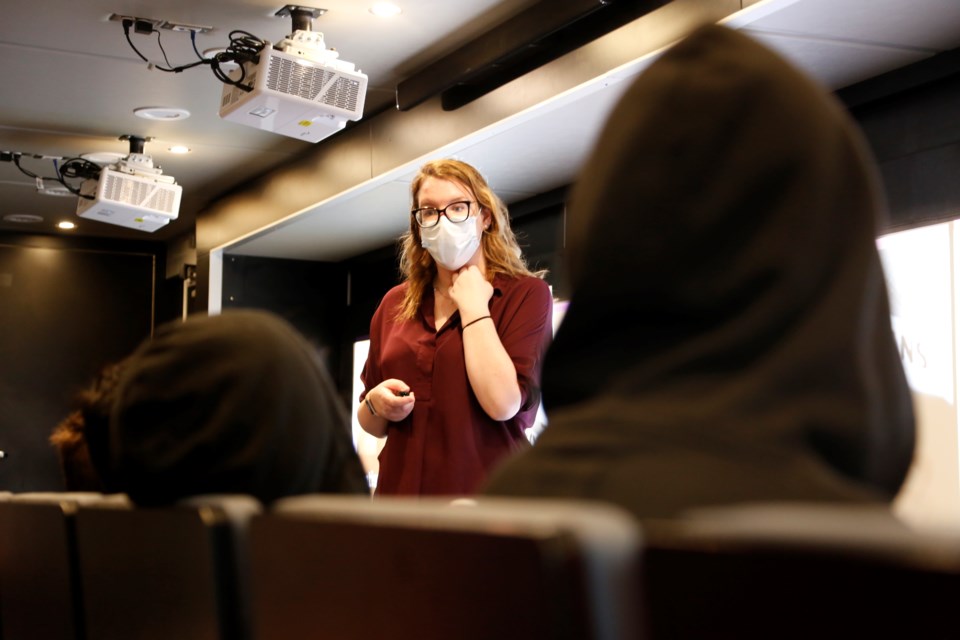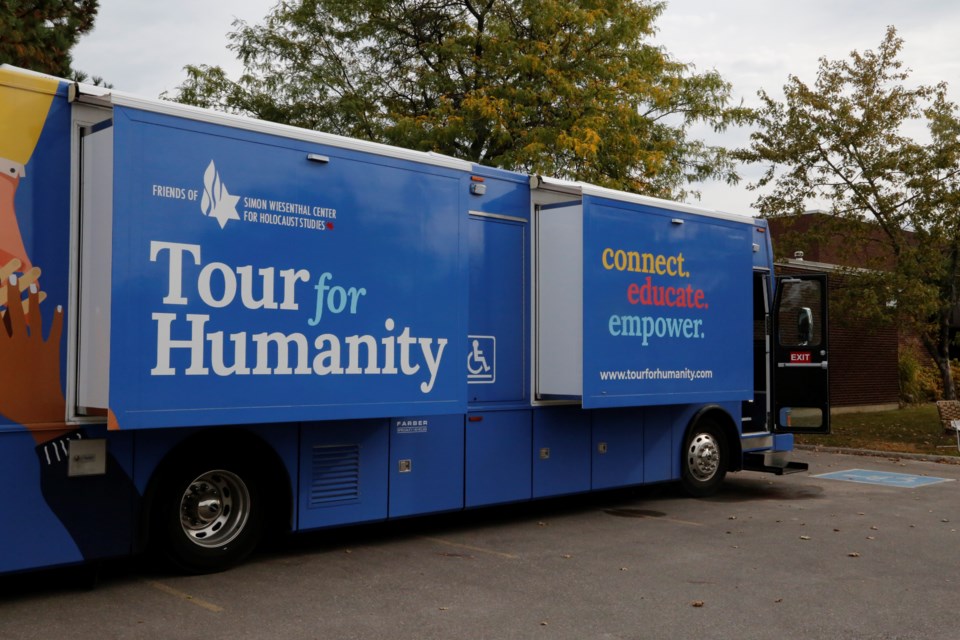While the Holocaust casts a long shadow across the western world, several educators are working to keep its tragic lessons alive, one school at a time.
The Friends of Simon Wiesenthal Center (FSWC) gave youths from Georgetown’s Centennial Public School a course in the Shoah on Thursday (Oct. 5). They were in Acton On Tuesday.
The pupils were ushered into a mobile classroom aboard the FSWC’s bus, which they've transformed into an immersive experience called Tour for Humanity.
“When I do these presentations, the first and foremost thing I want each of [the kids] to feel is they can make a difference,” educator for the FSWC Kim Quinn said.
"Often when we talk about something like the Holocaust, a lot of people say, ‘there's nothing we could have done.’ I want people, especially kids, to understand their voices are more powerful.”
Centennial’s vice principal said she wanted her students to not forget the impact of the Holocaust, and gain a better understanding of how past immigration policies impacted specific groups of people.

Quinn’s presentation gave students and their teachers a history lesson on the events leading up to one of humanity’s darkest chapters. Quinn did not mince her words about what Canada could have done to help the Jewish people. Or rather, what the country did not do.
Canada initially made no commitment to accept European Jewish refugees. During the 1938 Évian Conference, Canada’s diplomatic representative Humphrey Hume Wrong said that Canada was not equipped to welcome the refugees.
“In 1930, when the economic crisis descended on Canada with extreme gravity, circumstances forced a change in immigration policy because of the impossibility of absorbing immigrants in any volume,” Wrong said in a speech.
“Unfortunately, the continuance of serious unemployment and of economic uncertainty and disturbance still limits severely Canadian power to absorb any considerable number of refugees,” he added.
In 2018, Prime Minister Justin Trudeau apologized for Canada turning away 254 refugees aboard the MS St. Louis in 1939, who later died in concentration camps.
“We actually turned Jewish people away,” Quinn told the students in her presentation. “After 1943, we reversed that policy and we did let people into the country.”
Between 1933 and 1945, Canada allowed a mere 5,000 Jewish refugees - the lowest of all the receiving nations during the same time period.
When asked what value she sees in presentations like hers, Quinn said it's about “giving students a chance to be validated.”
She continued: “But more recently, we've seen so much disinformation and so many conspiracies flood our schools, our Internet, our world at large that this is a really great chance for us to combat some of that.”
Recently, Speaker of the House Anthony Rota resigned after Yaroslav Hunka, a veteran who fought with a Nazi division who he invited to attend Parliament, received a standing ovation.
“It's so easy for an alternative narrative to emerge when we have powerful people who do not know their own history or who don't put value into it,” Quinn said. “When disinformation and ignorance are joined together, that is probably one of the most dangerous combos alive.”



